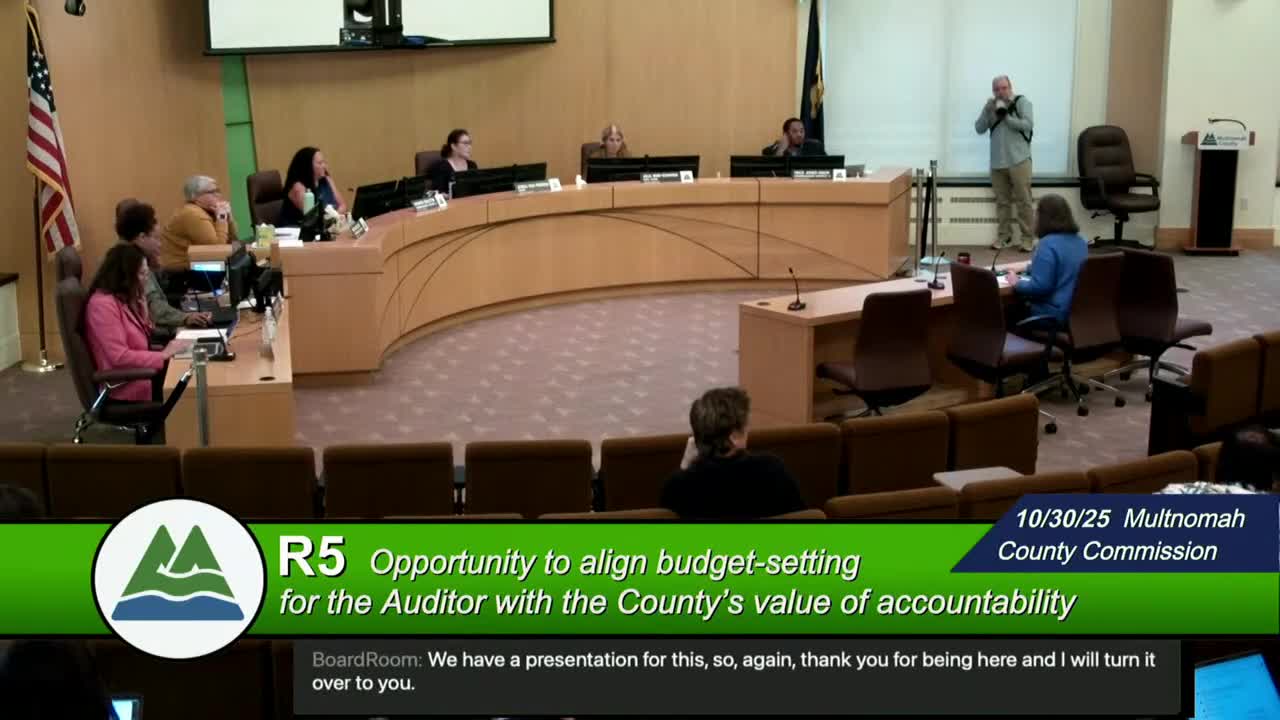County auditor urges set allocation for auditor’s office; proposes 0.75% of general fund as target
Get AI-powered insights, summaries, and transcripts
Subscribe
Summary
County Auditor Jennifer McGwirk recommended the board adopt a set allocation mechanism for funding the auditor’s office to remove a perceived conflict of interest and align with national best practices. She proposed a target allocation of 0.75% of general fund expenditures (current: ~0.45%) to support audits, hotline investigations and an ombudsp
County Auditor Jennifer McGwirk presented a proposal Oct. 31 recommending that the auditor’s office be funded annually via a set allocation — a fixed percentage of the county’s general fund expenditures — rather than through the current process in which the chair proposes the budget for the auditor as part of the countywide budget package.
McGwirk said the existing process creates an appearance of conflict because the chair oversees programs the auditor can audit; she cited best practices from the Association of Local Government Auditors and analogous practices in jurisdictions such as San Francisco and Austin. The auditor proposed 0.75% of the general fund as a target to "right‑size" the office; she said the office currently operates at about 0.45% and is understaffed relative to peer jurisdictions when accounting for audit staff plus hotline and ombuds functions.
The auditor supplied comparative staffing data showing large local government auditor offices typically have roughly 15 total staff dedicated to auditing and that other jurisdictions maintain multiple hotline investigators and larger ombudsperson functions. McGwirk said a set allocation would make the auditor’s office less vulnerable to changing political winds and allow it to fulfill charter‑mandated responsibilities including audits, investigations and ombudsperson services.
Commissioners asked for additional comparative data and operational examples of set allocations and discussed the board’s role in the budget process; several commissioners voiced support for the principle of increased auditor independence but requested more detail on implementation and how allocations would behave in years of constrained revenues.
No vote was taken on an ordinance; the auditor said she would follow up with additional jurisdictional comparisons and implementation options.
